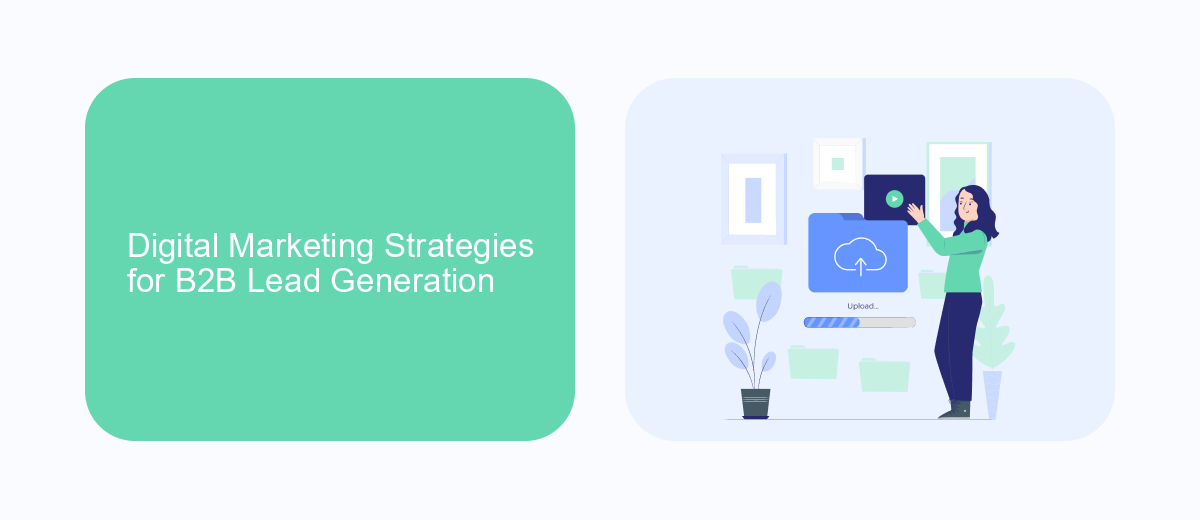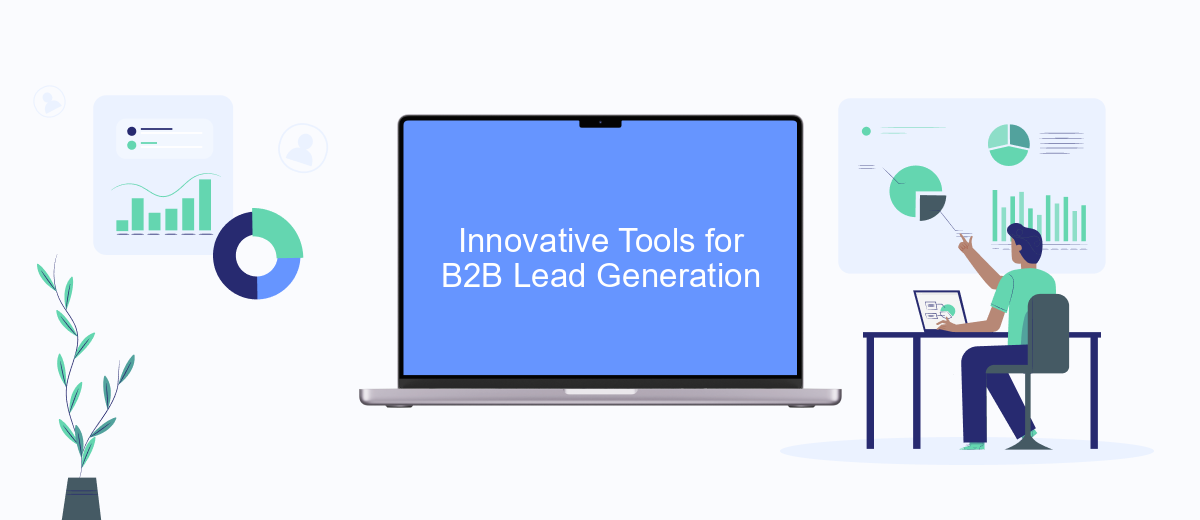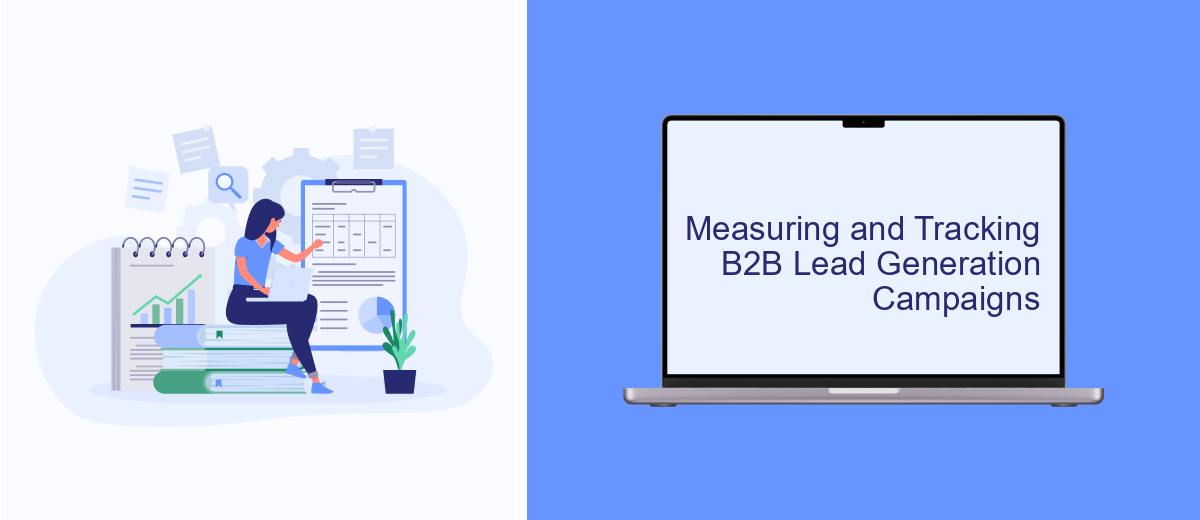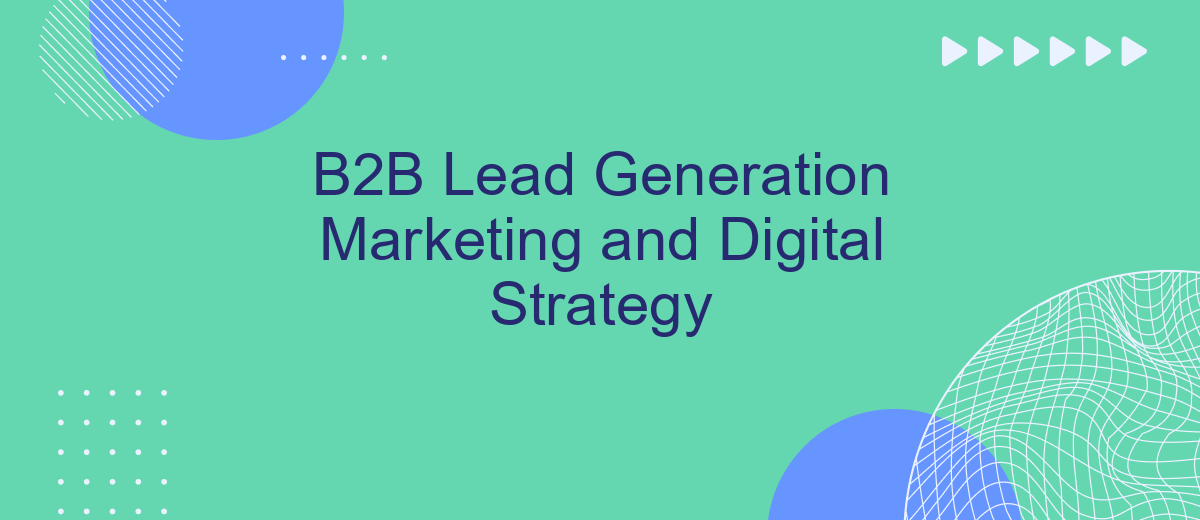In today's competitive business landscape, B2B lead generation marketing has become a crucial component for driving growth and success. By leveraging digital strategies, companies can effectively target and engage potential clients, turning prospects into valuable leads. This article explores the latest trends and best practices in B2B lead generation, providing insights on how to optimize your digital strategy for maximum impact and return on investment.
B2B Lead Generation Definition and Importance
B2B lead generation is a critical component of business-to-business marketing strategies, focusing on identifying and attracting potential clients who are likely to be interested in a company's products or services. This process involves various tactics to capture and nurture leads, ultimately converting them into loyal customers. Effective lead generation is essential for building a robust sales pipeline and ensuring long-term business growth.
- Enhances brand visibility and awareness among target audiences.
- Increases sales opportunities by identifying potential clients.
- Improves marketing ROI by targeting high-quality leads.
- Facilitates better customer relationship management.
- Supports data-driven decision-making and strategy optimization.
The importance of B2B lead generation cannot be overstated, as it directly impacts a company's ability to grow and succeed in a competitive market. By focusing on generating high-quality leads, businesses can streamline their sales processes, reduce costs, and increase revenue. Ultimately, a well-executed lead generation strategy is crucial for maintaining a competitive edge and achieving sustainable business success.
Digital Marketing Strategies for B2B Lead Generation

In the realm of B2B lead generation, digital marketing strategies play a pivotal role in attracting and converting potential clients. One effective approach is leveraging content marketing to provide valuable insights and solutions that address the pain points of your target audience. By creating informative blogs, whitepapers, and webinars, businesses can establish themselves as thought leaders, thereby building trust and credibility. Additionally, optimizing your website for search engines (SEO) ensures that your content reaches a broader audience, increasing the chances of generating quality leads.
Another crucial strategy involves the use of marketing automation tools to streamline and personalize communication with prospects. Platforms like SaveMyLeads can be instrumental in this process, as they facilitate seamless integration between various marketing channels and CRM systems. This enables businesses to efficiently capture leads from multiple sources and nurture them through targeted email campaigns and personalized follow-ups. By automating these processes, companies not only save time but also enhance the precision of their lead nurturing efforts, ultimately driving higher conversion rates.
Innovative Tools for B2B Lead Generation

In the rapidly evolving landscape of B2B marketing, leveraging innovative tools for lead generation is crucial for staying competitive. These tools not only streamline processes but also enhance the quality and quantity of leads. By integrating cutting-edge technology, businesses can effectively target and engage potential clients, ultimately driving growth and profitability.
- AI-Powered Analytics: Utilize artificial intelligence to analyze customer data, predict behavior, and personalize marketing strategies.
- Chatbots: Implement intelligent chatbots to engage with website visitors in real-time, providing instant support and capturing lead information.
- CRM Integration: Seamlessly integrate Customer Relationship Management systems to manage and nurture leads through automated workflows.
- Social Media Listening Tools: Monitor social media platforms to identify potential leads and gather insights into industry trends and customer preferences.
- Content Personalization Engines: Deliver tailored content to prospects based on their browsing behavior and interests to enhance engagement and conversion rates.
By adopting these innovative tools, B2B marketers can enhance their lead generation efforts, ensuring a more targeted and efficient approach. This not only increases the likelihood of converting prospects into clients but also fosters long-term business relationships through personalized and timely interactions.
Measuring and Tracking B2B Lead Generation Campaigns

Measuring and tracking B2B lead generation campaigns is crucial for understanding their effectiveness and optimizing future efforts. By analyzing key metrics, businesses can gain insights into what strategies are working and where improvements are needed. Accurate tracking allows for better allocation of resources and ensures that marketing efforts align with overall business goals.
To effectively measure a campaign's success, it's important to establish clear objectives and key performance indicators (KPIs) from the outset. This provides a benchmark against which progress can be evaluated. Regularly reviewing these metrics helps in identifying trends and making data-driven decisions to enhance lead generation strategies.
- Conversion Rate: Measures the percentage of leads that convert into customers.
- Cost per Lead: Calculates the total cost incurred to acquire a single lead.
- Lead Quality: Assesses the potential value of leads based on predefined criteria.
- Customer Lifetime Value: Estimates the total revenue a business can expect from a customer.
Utilizing advanced analytics tools and software can streamline the tracking process, providing real-time data and insights. By continuously monitoring these metrics, businesses can refine their approaches, ultimately leading to more effective and profitable lead generation campaigns.
- Automate the work with leads from the Facebook advertising account
- Empower with integrations and instant transfer of leads
- Don't spend money on developers or integrators
- Save time by automating routine tasks
Best Practices in B2B Lead Generation
Effective B2B lead generation requires a strategic approach that combines both traditional and digital marketing techniques. A key practice is to clearly define your target audience and create detailed buyer personas. This helps in tailoring your messaging and content to address the specific needs and pain points of your potential clients. Utilizing content marketing, such as blogs, whitepapers, and webinars, can position your company as a thought leader in your industry, attracting leads who are actively seeking solutions.
Another best practice is to leverage technology to streamline and optimize your lead generation process. Tools like SaveMyLeads can automate the integration of various platforms, ensuring that your leads are effectively captured and managed across different channels. By automating tasks such as data entry and lead tracking, your team can focus more on nurturing relationships and converting leads into customers. Additionally, regularly analyzing and refining your strategies based on data-driven insights will help in continuously improving your lead generation efforts.
FAQ
What is B2B lead generation, and why is it important for businesses?
How can digital marketing strategies enhance B2B lead generation?
What role does automation play in B2B lead generation?
How can businesses measure the success of their B2B lead generation efforts?
What are some common challenges in B2B lead generation, and how can they be overcome?
You probably know that the speed of leads processing directly affects the conversion and customer loyalty. Do you want to receive real-time information about new orders from Facebook and Instagram in order to respond to them as quickly as possible? Use the SaveMyLeads online connector. Link your Facebook advertising account to the messenger so that employees receive notifications about new leads. Create an integration with the SMS service so that a welcome message is sent to each new customer. Adding leads to a CRM system, contacts to mailing lists, tasks to project management programs – all this and much more can be automated using SaveMyLeads. Set up integrations, get rid of routine operations and focus on the really important tasks.

